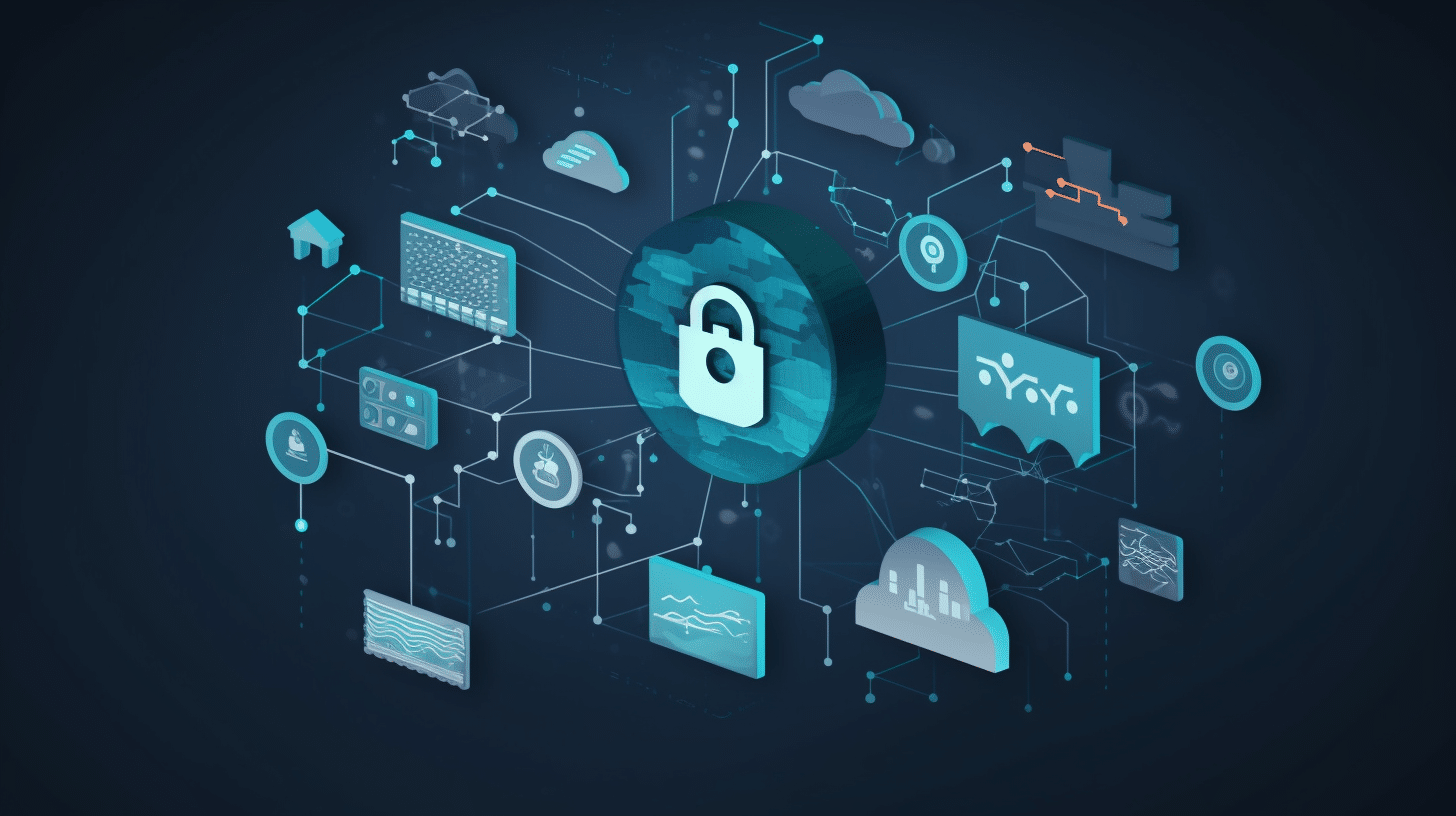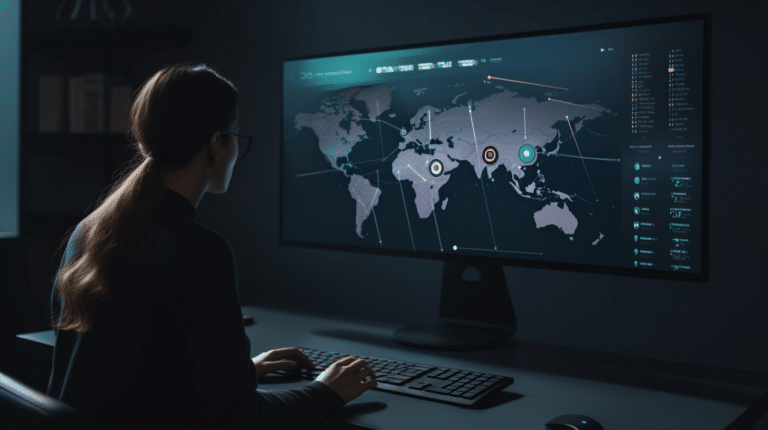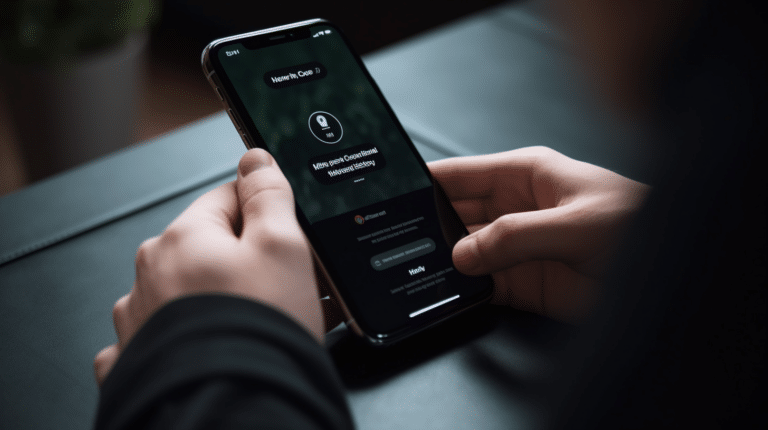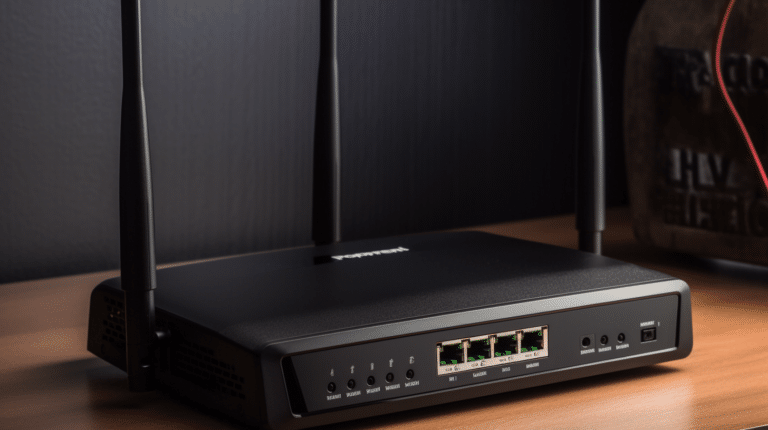A Virtual Private Network (VPN) is a technology that allows users to create a secure and encrypted connection to another network over the internet. This secure connection enables users to browse websites and access online resources safely, even when connected to potentially insecure networks such as public Wi-Fi hotspots. In addition to improving security and privacy, VPNs are also used for various other purposes, such as bypassing geographic restrictions and accessing blocked content.
When using a VPN, your internet traffic is routed through an encrypted tunnel to a server operated by the VPN provider. This process masks your IP address and can make it appear as if you are accessing the internet from a different location. As a result, VPNs not only protect your data from potential eavesdroppers but also help you maintain anonymity online, safeguarding your privacy and preventing unwarranted tracking by third parties.
Key Takeaways
- VPNs provide enhanced security, privacy, and anonymity when browsing the internet.
- Users can access geo-restricted content and bypass internet censorship with a VPN.
- It’s essential to choose a trustworthy VPN provider and follow additional security practices for optimum protection.
Understanding VPNs
Virtual Private Network
A Virtual Private Network (VPN) is a technology used to create a secure and encrypted connection between your device and the internet. This helps to protect your privacy, secure your data, and access restricted content. A VPN establishes a “tunnel” between your device and the server you are connecting to, ensuring that your data is transmitted securely over the internet. This is accomplished by using encryption and security protocols, such as IPsec, which are designed to protect your data from potential threats like hackers and malicious software.
Encryption and Security
Encryption is an essential aspect of VPN usage. It is a process that makes your data unreadable by converting it into a complex code, which can only be deciphered with the correct decryption key. VPNs use strong encryption algorithms and keys to ensure the security of your internet connection.
As for security, a VPN protects your online privacy by masking your IP address and location. This makes it difficult for anyone, including your Internet Service Provider (ISP), governments, or hackers, to track your online activities or intercept your data.
VPN Protocols
Different VPN protocols determine how data is transmitted between your device and the VPN server. Some common protocols include:
- IPsec: Internet Protocol Security (IPsec) is a widely-used protocol that provides secure transmission by encrypting both the data payload and the tunnel through which it travels. This ensures confidentiality, integrity, and authentication of the data exchanged between your device and the VPN server.
- SSL/TLS: Secure Sockets Layer (SSL) and its successor, Transport Layer Security (TLS), are protocols used to establish an encrypted and secure communication channel between your device and the VPN server. They are typically used in combination with other protocols to enhance security.
- OpenVPN: OpenVPN is an open-source protocol that combines the advantages of SSL/TLS with additional security features. It is highly customizable and can work on multiple platforms, making it a popular choice for VPN service providers.
Using a VPN offers an effective way to enhance your privacy, protect your data and access geo-restricted content in a professional manner. By understanding the key components such as encryption, security, and protocols, you can make a more informed decision when selecting a VPN service that best meets your needs and requirements.
Key Benefits of VPNs
Enhanced Privacy
A VPN offers enhanced privacy by masking your IP address, which enables you to surf the web anonymously. This ensures that your online activities remain private, as it becomes difficult for websites, ISPs, and other entities to track or trace your location and identity. Furthermore, by encrypting your internet data, a VPN prevents hackers and malicious actors from accessing sensitive information, providing an extra layer of security.
Unblocking Geo-Restricted Content
Geographic restrictions can impede your access to popular platforms like Netflix, Hulu, and Facebook from certain locations. A VPN enables you to bypass these restrictions by connecting to a server in the desired country, thereby granting you access to content that was previously inaccessible. This feature not only provides more comprehensive access to websites but also allows you to explore diverse content from around the world.
Secure Public Wi-Fi Access
Public Wi-Fi networks in places like airports, cafes, and hotels often lack robust security measures, making them vulnerable to cyberattacks. Utilizing a VPN on public Wi-Fi encrypts your data and secures your connection, ensuring that your personal information remains private and safe from potential hackers.
| Pros | Cons |
|---|---|
| Secure internet browsing | May slow down connection |
| Access to blocked content | Potential compatibility issues |
Prevent ISP Tracking
ISPs (Internet Service Providers) can monitor your online activity, track the websites you visit, and log your browsing history. This information can be shared with third parties, or even used to throttle your internet speeds based on your usage. A VPN effectively prevents ISP tracking by encrypting your online activity, maintaining your privacy and ensuring that your browsing experience remains unimpeded.
Remote Work
In today’s fast-paced digital landscape, remote work is increasingly common. VPNs play a crucial role in facilitating secure access to company networks from remote locations. By using a VPN, employees can connect to the corporate intranet and access sensitive files, emails, and internal resources without compromising security.
Things to Consider
- VPN service provider
- Connection speed
- Platform compatibility
In summary, VPNs have a multitude of benefits including enhanced privacy, unblocking geo-restricted content, secure access to public Wi-Fi networks, prevention of ISP tracking, and supporting remote work. These advantages make VPNs an essential tool for maintaining security and privacy in the digital world.
Types of VPNs
There are several types of VPNs available, each serving a specific purpose and providing different levels of security, privacy, and accessibility. In this section, we will discuss three common types: VPN Services, Site-to-Site VPN, and Tor.
VPN Services
VPN services are third-party providers that offer VPN connections for individuals and businesses. These services allow users to connect to a VPN server, which is responsible for encrypting the user’s data and providing a secure connection to the desired destination. Some popular VPN services include ExpressVPN, NordVPN, and Surfshark.
VPN services are typically used for:
- Ensuring privacy by masking a user’s true IP address
- Bypassing geographical restrictions and censorship
- Securing data transmissions on public Wi-Fi networks
To use a VPN service, users can download and install a client application on their devices, which facilitates the connection to the VPN server.
Site-to-Site VPN
A site-to-site VPN establishes a secure connection between multiple networks, usually used by businesses or organizations that require access to resources across different geographical locations. This type of VPN allows the networks to operate as if they were physically connected.
Site-to-site VPNs can be further divided into two categories:
- Intranet VPN: Connects multiple offices from the same organization, enabling employees to access internal resources and databases.
- Extranet VPN: Connects a business with external partner networks, such as suppliers or vendors, while maintaining data confidentiality between the parties.
Site-to-site VPNs are typically set up using IPsec or Multi-Protocol Label Switching (MPLS) protocols to secure the data transmission.
Tor
Tor, or The Onion Router, is a decentralized network of volunteer-operated servers designed to provide anonymity and privacy for its users. Tor works by routing the user’s data through multiple server nodes, each adding a new layer of encryption, making it extremely difficult to trace the original source of the data.
Although Tor is not a VPN in the traditional sense, it serves a similar purpose, offering users privacy and anonymity when browsing the web or accessing other online services. It’s important to note that Tor is not suitable for data-intensive tasks such as video streaming or downloading large files, as its multi-node encryption and routing process can lead to slower connection speeds.
In summary, there are various types of VPNs, each with its own purpose and level of security. Users can choose between VPN services, site-to-site VPNs, and Tor, depending on their requirements for privacy, security, and access to online resources.
Potential VPN Limitations
VPNs are a popular and useful tool for enhancing online privacy and security. However, it is essential to be aware of some limitations that they may present. In this section, we will discuss two primary potential limitations of using VPNs: Speed Impacts and Legal Considerations.
Speed Impacts
Using a VPN can sometimes cause a decrease in internet speed, resulting in a slower browsing experience. This is because VPNs route your data through their servers, which can be located anywhere in the world, adding extra distance for your data to travel. In addition, the encryption process can also consume additional processing power, further contributing to the speed reduction.
The potential speed impacts of using a VPN may include:
- Increased latency: As the data has to travel longer distances, there may be a noticeable increase in the time it takes for data to be sent and received (lag).
- Reduced bandwidth: The extra processing power required for encryption and decryption can limit the available bandwidth, potentially causing slower download and upload speeds.
However, it is worth noting that the specific speed impact of a VPN varies greatly depending on factors such as the VPN provider’s server locations, available bandwidth, and the user’s internet connection.
Legal Considerations
While VPNs can provide many benefits in terms of privacy and security, there are some legal considerations that users need to be aware of:
- VPNs and local laws: The use of VPNs may be restricted or even illegal in some countries. This means that individuals using a VPN in a country where it is not allowed could face legal repercussions. It is essential to familiarize yourself with the local laws before using a VPN in a particular location.
- Copyright and content distribution: Some people use VPNs to bypass geographic content restrictions and access content that is not available in their region. This activity can potentially violate copyright laws and the terms of service for various content providers. Users should be cautious not to engage in such activities to avoid legal issues.
In conclusion, VPNs offer valuable benefits when it comes to online privacy and security. Still, it is crucial to consider the potential limitations and legal implications before utilizing a VPN service.
Choosing a VPN Provider
When selecting a VPN provider, it is essential to consider certain aspects such as security features, server locations, and logs policy. These factors play a crucial role in ensuring you get the best VPN service experience that suits your needs.
Security Features
To ensure your data is protected and your privacy is maintained, a VPN provider should offer robust security features. One crucial factor to look for in a provider is two-factor authentication support, which adds an extra layer of security to your account by requiring not just a password but also a generated code from your device before allowing access.
Other essential security features to look for in a VPN provider include:
- Strong encryption algorithms
- Kill switch to terminate connections if the VPN drops
- Secure tunneling protocols
- DNS leak protection
Server Locations
When making use of a VPN, server locations are critical as they determine the speed and accessibility of the service. A VPN provider with more server locations offers better chances of finding a reliable connection nearby, reducing latency and improving overall performance. Having numerous server locations also allows the user to bypass geographical restrictions on content, making it possible to access region-specific websites and streaming services.
Logs Policy
Understanding a VPN provider’s logs policy is vital as it dictates what information, if any, is stored about the user’s activities while connected to the VPN service. Ideally, a VPN provider should have a strict no-logs policy, meaning they do not store any data regarding user connections, browsing activities, or even timestamps. This ensures that user privacy is maintained and there is no risk of data being shared or used without the user’s consent.
Additional VPN Security Tips
While Virtual Private Networks (VPNs) greatly enhance online security and privacy, users should also be proactive about maximizing VPN security. Apart from selecting a reliable VPN provider with strong encryption and no-logs policies, here are some additional security tips that will help safeguard your privacy and data.
Using HTTPS
For an additional layer of protection, using Hypertext Transfer Protocol Secure (HTTPS) along with your VPN connection is essential. HTTPS encrypts data transmitted over the web, ensuring secure communications between your browser and the target website. Most modern browsers, such as Chrome, indicate a secure connection with a padlock icon in the address bar. Take advantage of HTTPS extensions like HTTPS Everywhere, which automatically enforces HTTPS for the sites you visit.
Beware of Malware
Even while using a VPN, you can still be exposed to malware threats such as ransomware, adware, and phishing attempts. It is crucial to complement your VPN with a reputable anti-malware software. Update your antivirus software regularly to prevent potential security vulnerabilities. Refrain from clicking on suspicious links, opening email attachments from untrusted sources, and downloading unsafe or pirated content.
- Use an antivirus software and keep it up to date
- Avoid suspicious links and email attachments
- Be cautious when downloading content from the internet
Use a Kill Switch
A VPN kill switch is a must-have feature for any VPN service. If your VPN connection drops unexpectedly, the kill switch will automatically terminate your internet connection, ensuring your IP address and personal data remain secure. This prevents accidental exposure of sensitive information or browsing activity to prying eyes. Check for a built-in kill switch in your VPN client and enable it for enhanced privacy protection.
In conclusion, a VPN brings numerous security benefits, but additional measures are required to ensure a comprehensive protection. Remember to use HTTPS, guard against malware, and enable the kill switch to maximize your VPN’s security potential.
VPN Misconceptions
Anonymity vs. Privacy
It’s important to understand the difference between anonymity and privacy when using a VPN. Some users may assume that using a VPN provides complete anonymity online, but this is a misconception. While VPNs can help protect your privacy by encrypting your data and hiding your IP address, they don’t make you completely anonymous. This is because VPN providers can still see your activity and some may log your data or be susceptible to law enforcement requests. Therefore, it’s crucial to know the logging policies of the VPN provider before trusting them with your sensitive information.
In the context of VPNs, privacy refers to the ability to keep your online activities and data secure from unauthorized access. A VPN provides a valuable layer of privacy by creating a secure connection between your device and a remote server, which can protect you from eavesdropping and third-party tracking when browsing the web. However, using a VPN doesn’t guarantee that your sensitive information will be safe from all potential threats. It simply adds an additional layer of security to your online activities.
Not All VPNs Are Created Equal
Another common misconception is that all VPNs offer the same level of security and privacy features. In reality, there is a wide range of VPNs available on the market, each with varying degrees of protection, performance, and features. Some VPNs may offer stronger encryption algorithms or a more extensive server network, while others may prioritize speed and ease of use.
It’s important to research and compare different VPN providers before making a decision, to ensure that you’re choosing a service that meets your specific needs and preferences. Some key factors to consider when selecting a VPN include the provider’s logging policy, the strength of encryption used, the number of available server locations, and the overall performance and stability of the service.
In conclusion, keep in mind that using a VPN does not guarantee complete anonymity, but it offers invaluable privacy protection. Be aware of the differences among VPN providers and carefully evaluate their features before relying on them for your online security. By being informed about these misconceptions, you’ll have a better understanding of what a VPN can and cannot do for your internet activities.
Frequently Asked Questions
How does a VPN improve online security?
A VPN, or Virtual Private Network, enhances online security by creating an encrypted tunnel between your device and the VPN server. This encryption prevents hackers and cybercriminals from intercepting or spying on your data as it travels through the internet. Additionally, a VPN can help protect you from Man-in-the-Middle attacks by authenticating the connection between your device and the network you are connected to, which makes it much harder for attackers to intercept your data. For more details, refer to this article.
What benefits does a VPN offer for privacy?
VPNs provide increased privacy by masking your IP address, making it more difficult for online trackers, advertisers, and malicious actors to track your online activities. By assigning you a new IP address from the VPN server’s location, your true location and identity can become hidden, allowing you to browse the internet anonymously.
Can a VPN help with accessing geo-restricted content?
Yes, a VPN can help bypass geo-restricted content by allowing you to connect to a server in a different country. This makes it appear as if you are browsing the internet from that country, granting you access to content that would otherwise be unavailable in your location. For example, connecting to a server in the United States would enable you to access US-based streaming services even if you are in a different country.
Do VPNs work on smartphones and computers?
VPNs are compatible with various devices, including smartphones, tablets, laptops, and desktop computers. All major operating systems, such as Windows, macOS, Linux, iOS, and Android, have VPN support, and many VPN providers offer dedicated apps or configurations for these platforms.
Are free VPNs as effective as paid options?
Although free VPNs may provide some level of protection, they often come with limitations such as slower speeds, data caps, and fewer server options. Paid VPNs typically offer better performance, more server locations, and advanced features such as stronger encryption and a kill switch, which automatically disconnects your device from the internet if the VPN connection drops.
How can a VPN protect against hackers and data breaches?
A VPN adds an extra layer of security when using public Wi-Fi networks by encrypting your data, making it more challenging for hackers to intercept or manipulate it. Furthermore, a secure VPN can protect your data from being exposed during a data breach, as even if an attacker manages to access your information, the encryption would render it unreadable.






